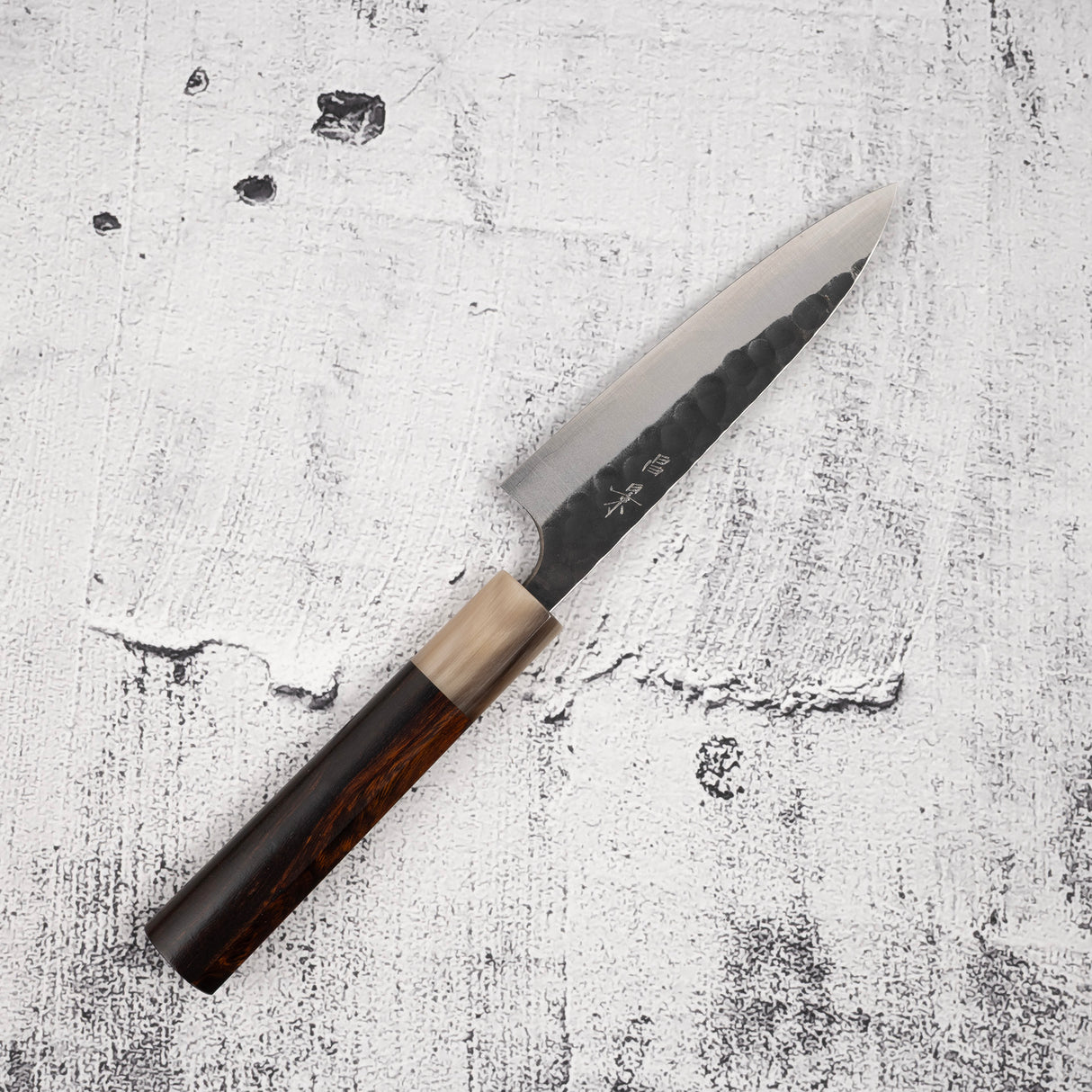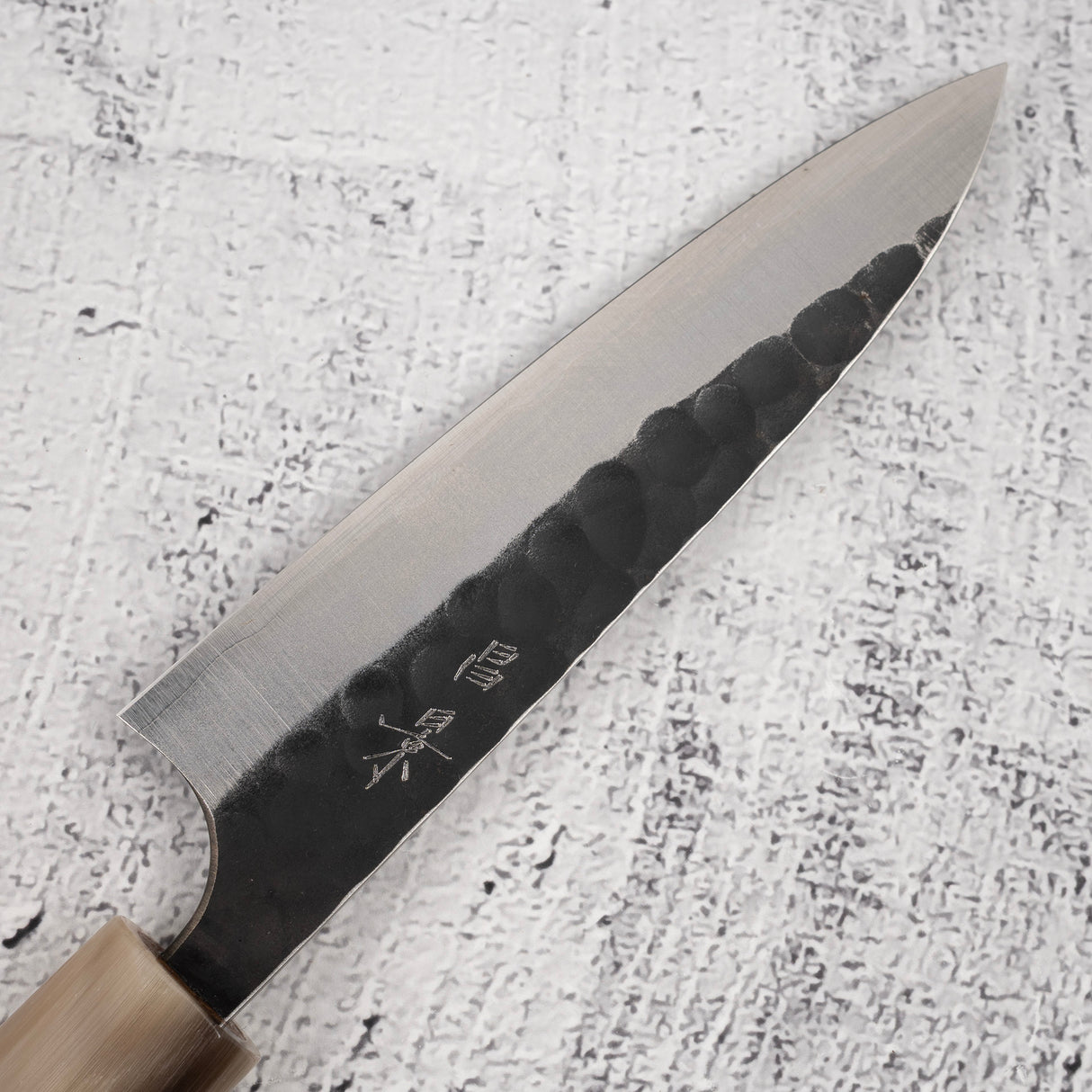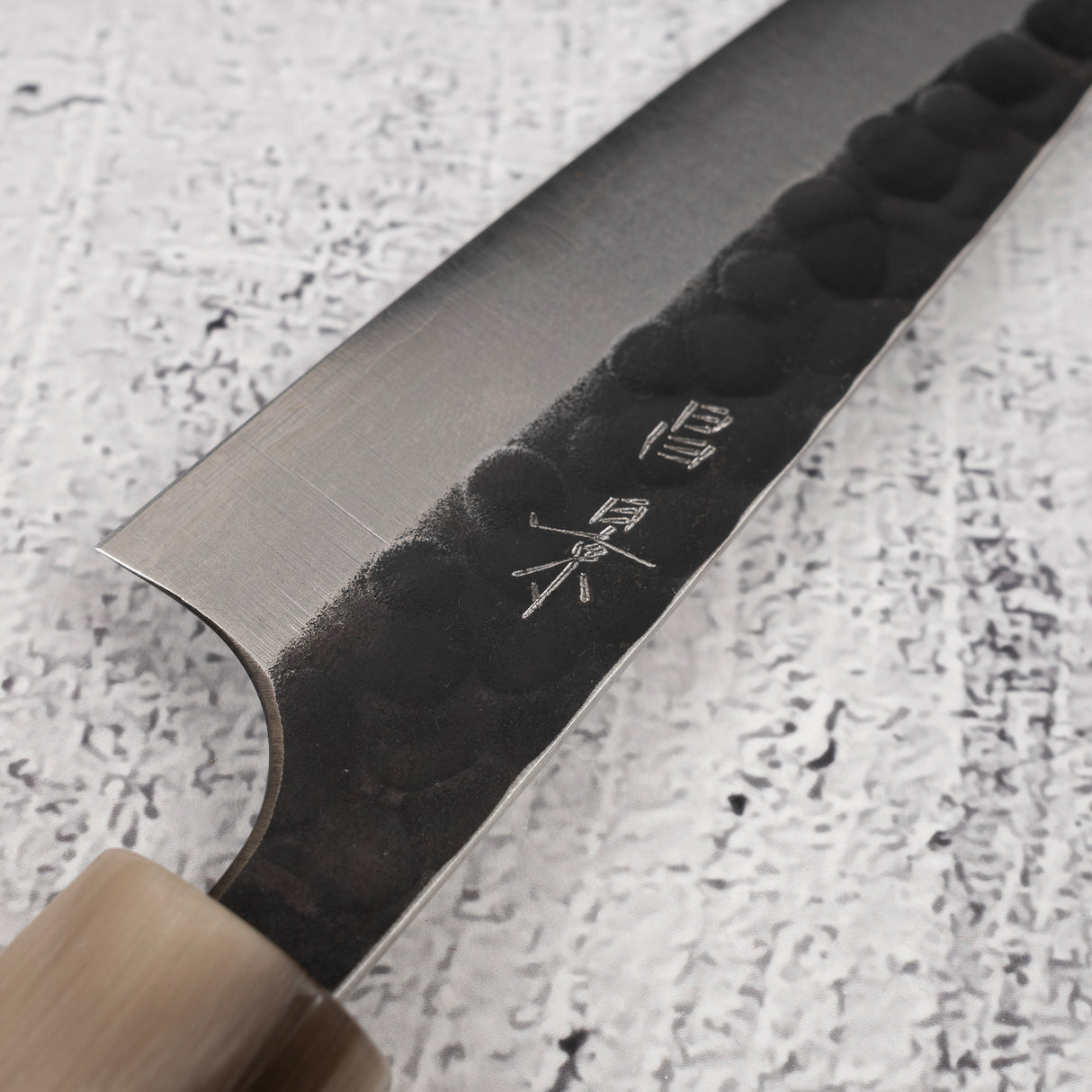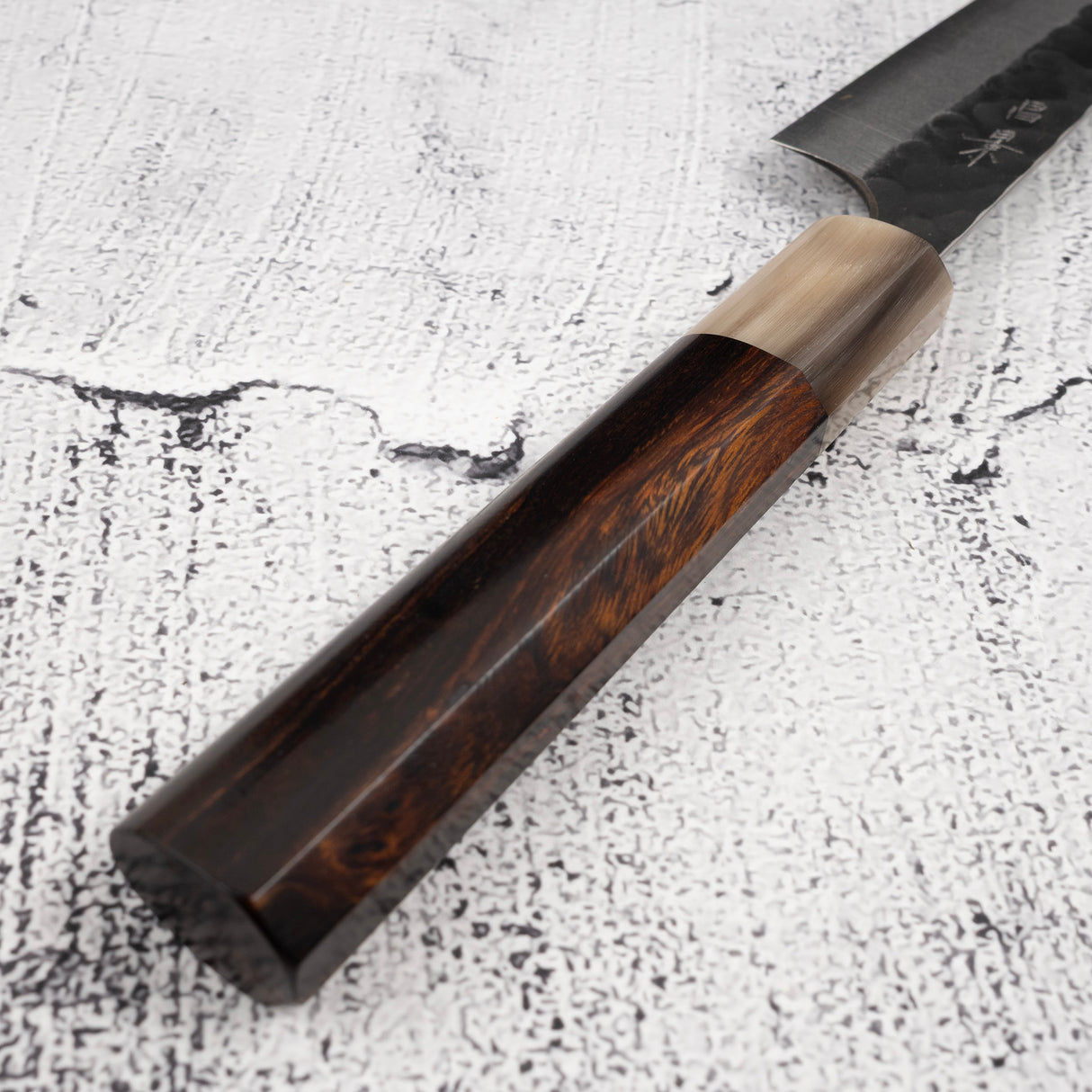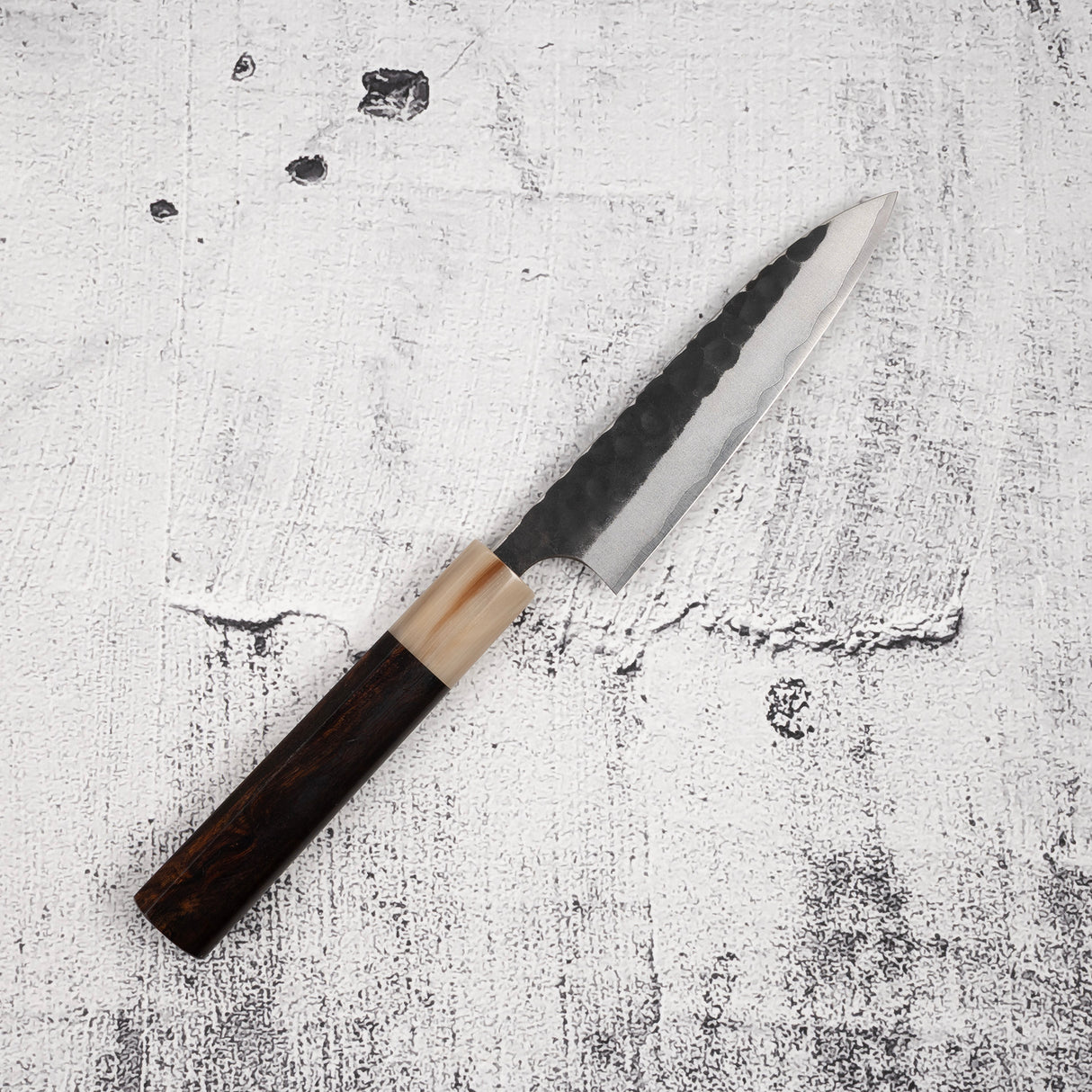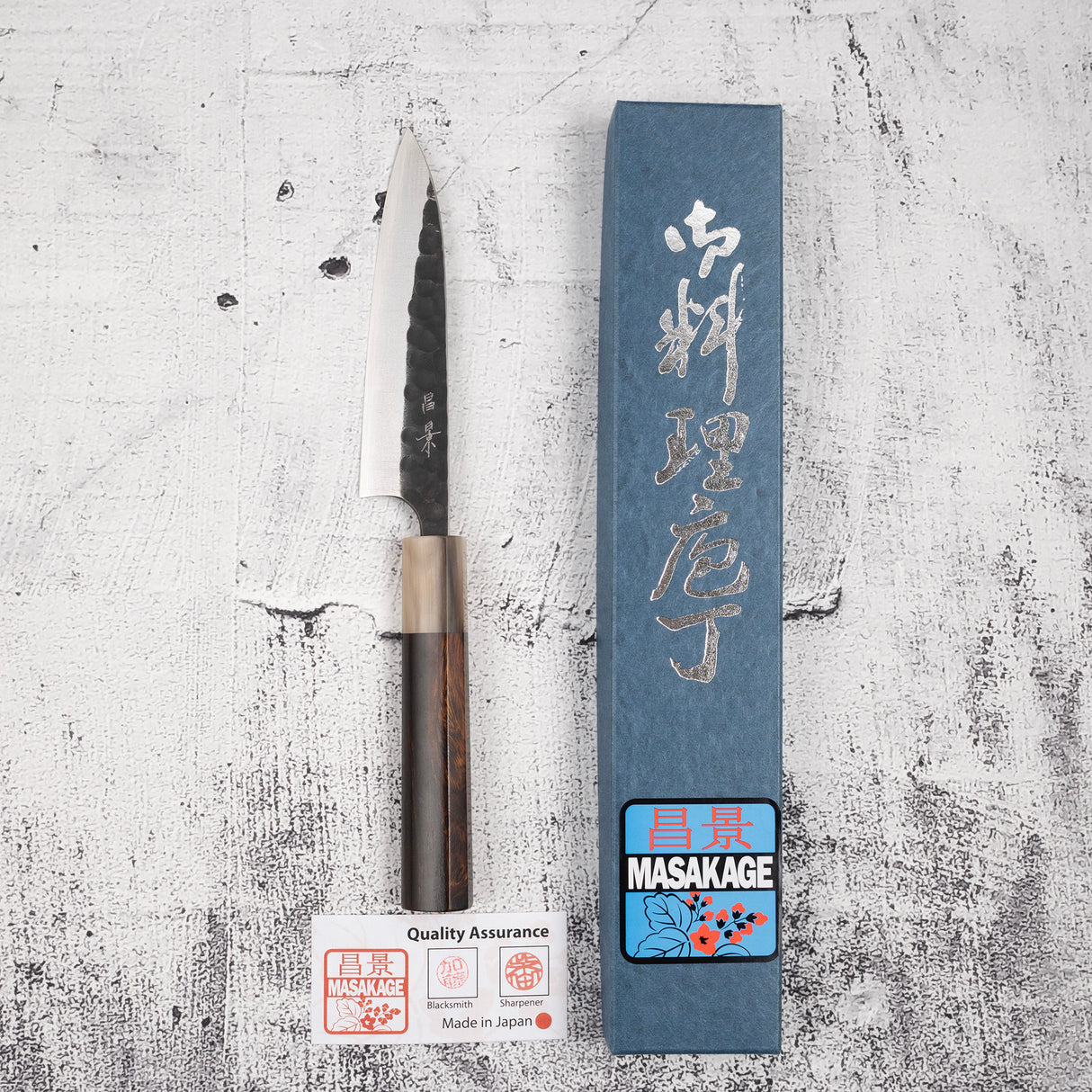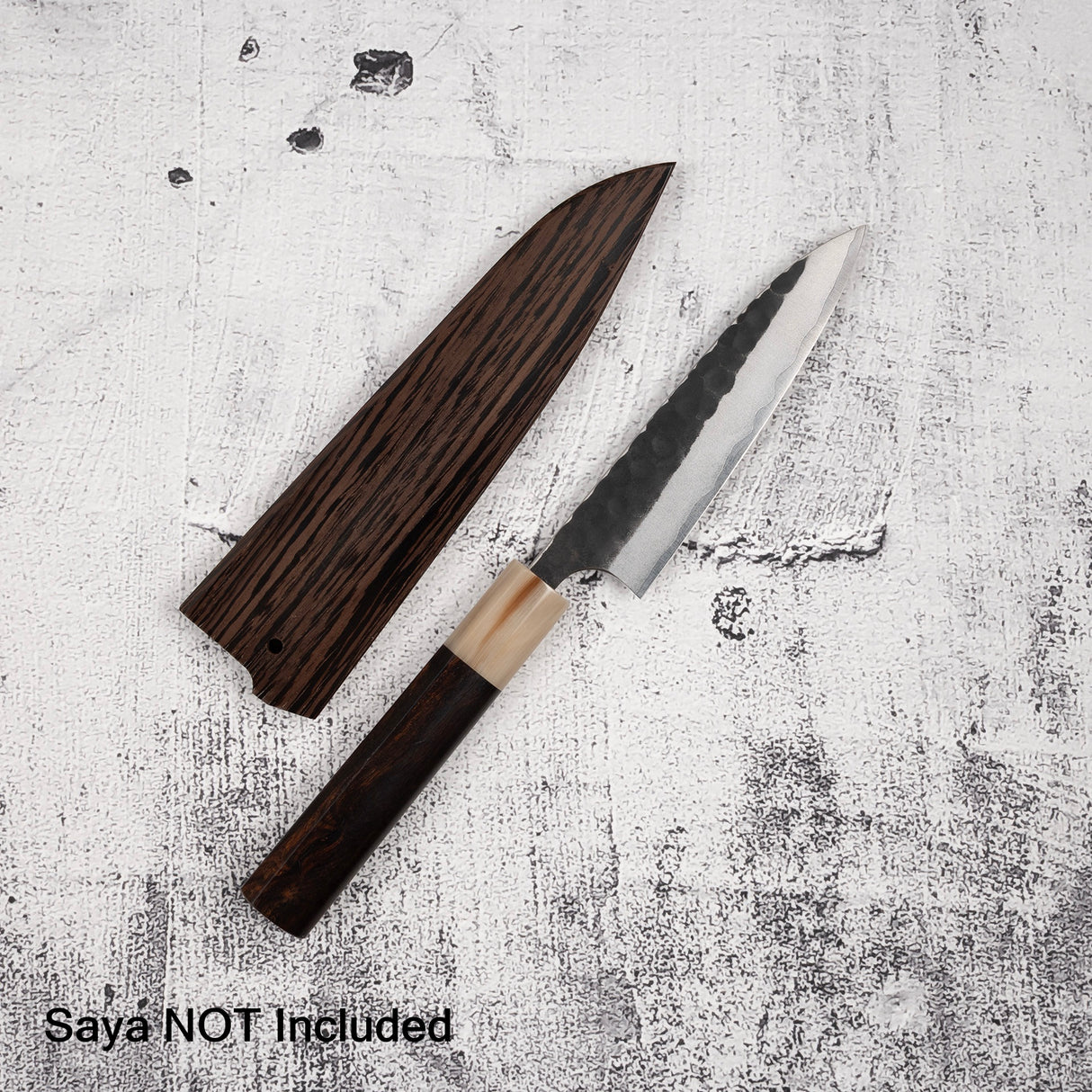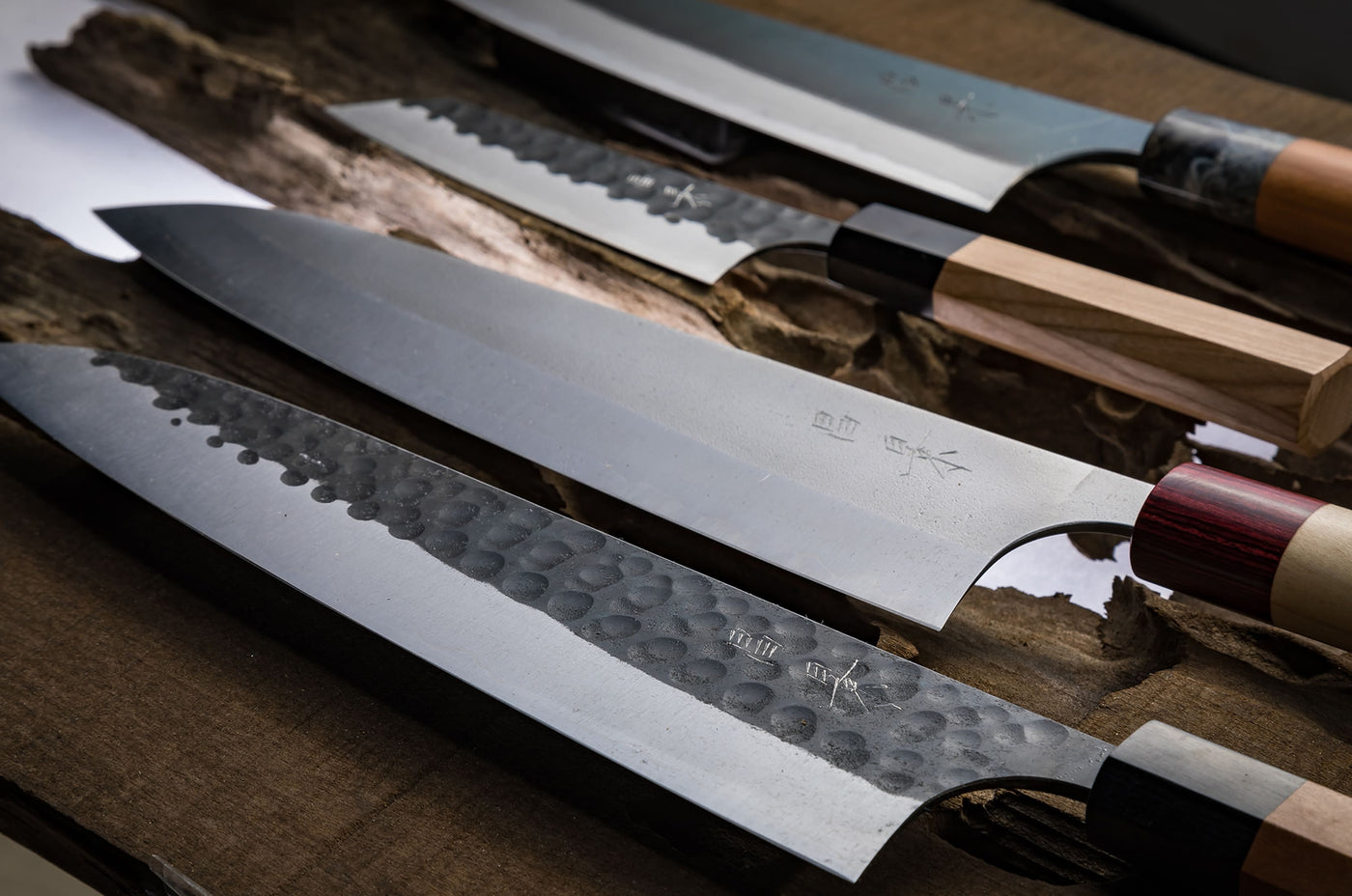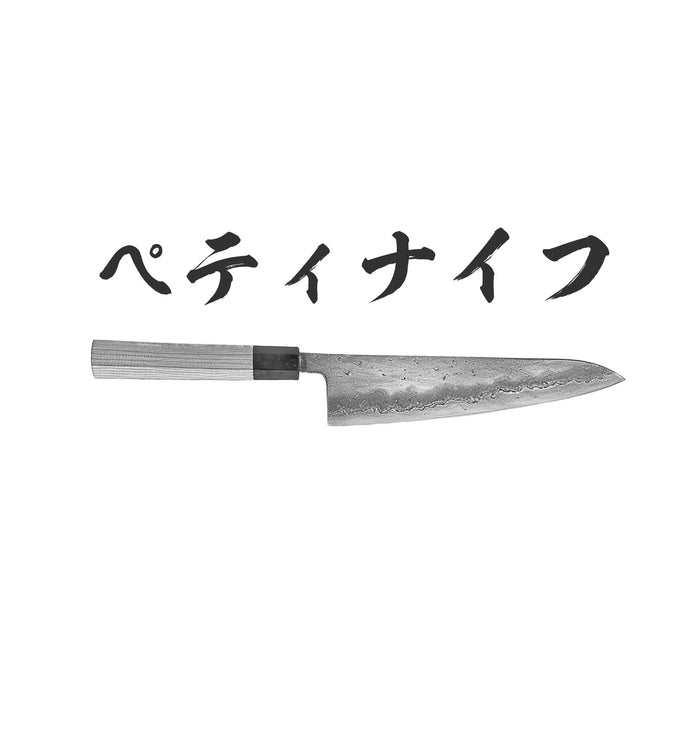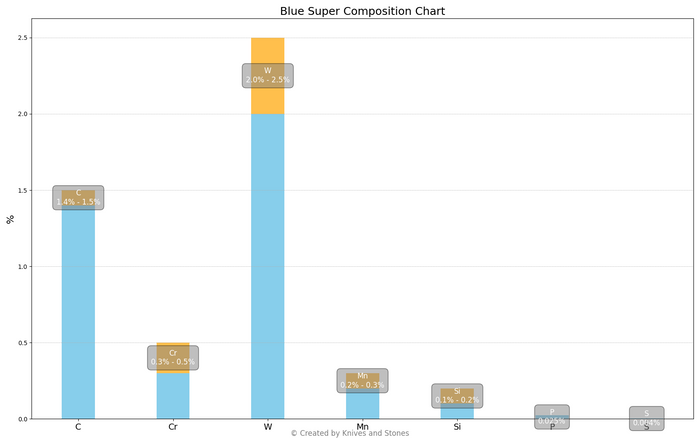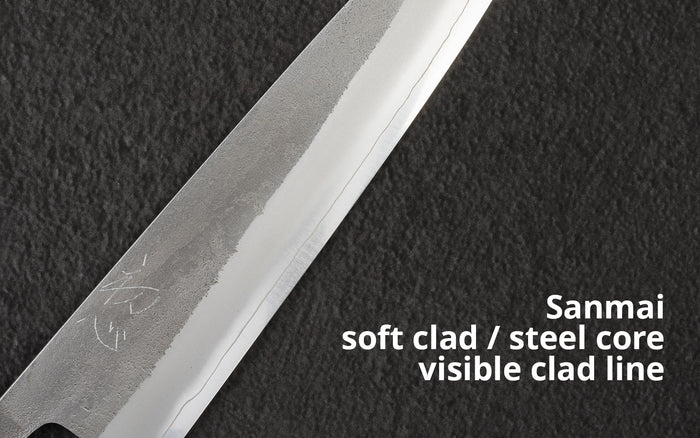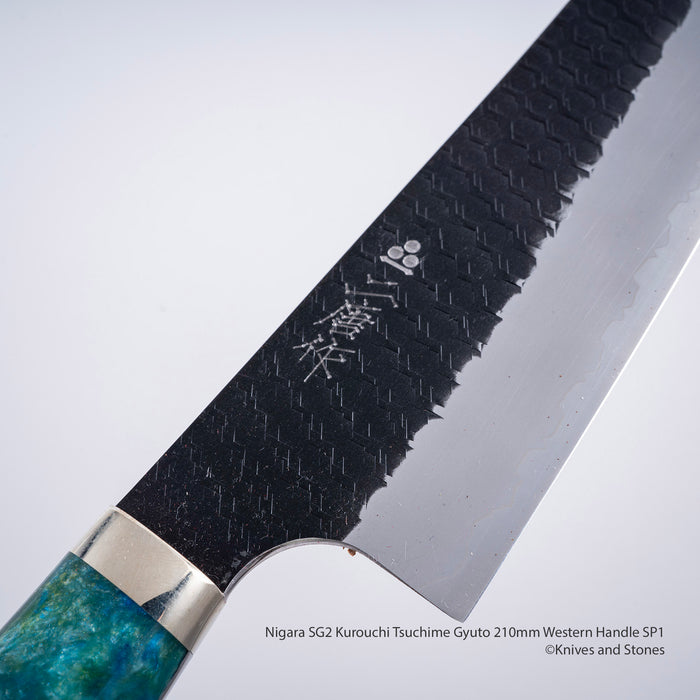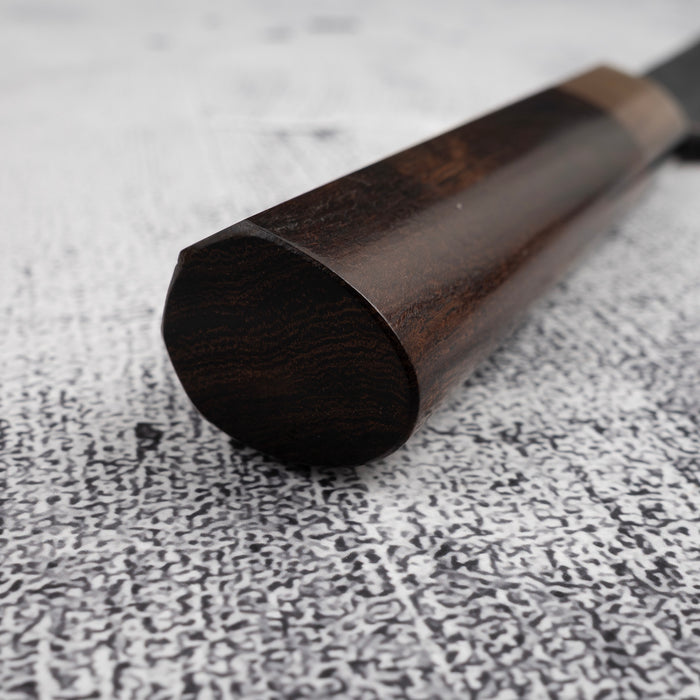Shibata | SKU:
MASA_KSAS_PE120_HIRW
Masakage Koishi AS Petty 120mm, Aogami Super Kurouchi Tsuchime K&S Hearted-shaped Ironwood Handle
Regular price
$399.95
Unit price
/
Unavailable
Masakage Koishi AS Petty 120mm, Aogami Super Kurouchi Tsuchime K&S Hearted-shaped Ironwood Handle is backordered and will ship as soon as it is back in stock.
IMPORTANT: Carbon steel knives can rust or patina quickly if not cared for properly. They require regular cleaning, drying, and oiling. If you are unfamiliar with carbon steel maintenance, we recommend choosing a stainless steel option instead.
Couldn't load pickup availability
Detailed Specifications
| Line | Masakage Koishi AS Kurouchi Tsuchime |
| Profile | Petty / Utility, Paring |
| Bevel Type | Double Bevel |
| Weight | 69 g | 2.4 oz |
| Edge Length | 121 mm | 4 49/64″ |
| Heel Height | 29 mm | 1 9/64″ |
| Width @ Spine | 2.0 mm | 5/64″ |
| Width @ Mid | 1.8 mm | 5/64″ |
| Width @ 1cm from Tip | 1.2 mm | 3/64″ |
| Steel | Blue Super / Aogami Super | Carbon |
| Blade Construction | Sanmai - Stainless Clad |
| Hardness (HRC) | 62 - 65 |
| Surface Finish | Kurouchi Tsuchime |
| Handle | Heart-shaped Ironwood Handle with Blonde Ferrule |
| Region | Fukuyama |
| Best for |
|

| Pros | Cons |
|
|
|
Care Instruction
- Don't cut hard things! Japanese knives are brittle so bone hacking is a NO NO!
- Wash with neutral detergent after use, and wipe dry;
- Please don't wash knife with dishwasher, it will damage the wood handle;
- Be careful not to leave the knife close to a heat source for a long time;
- It is a lot more dangerous to cut with a blunt knife than a sharp knife!
- It is best to sharpen a Japanese knife regularly on a waterstone.
- Oil the (carbon) knife if storing for an extended period of time to prevent rust.

